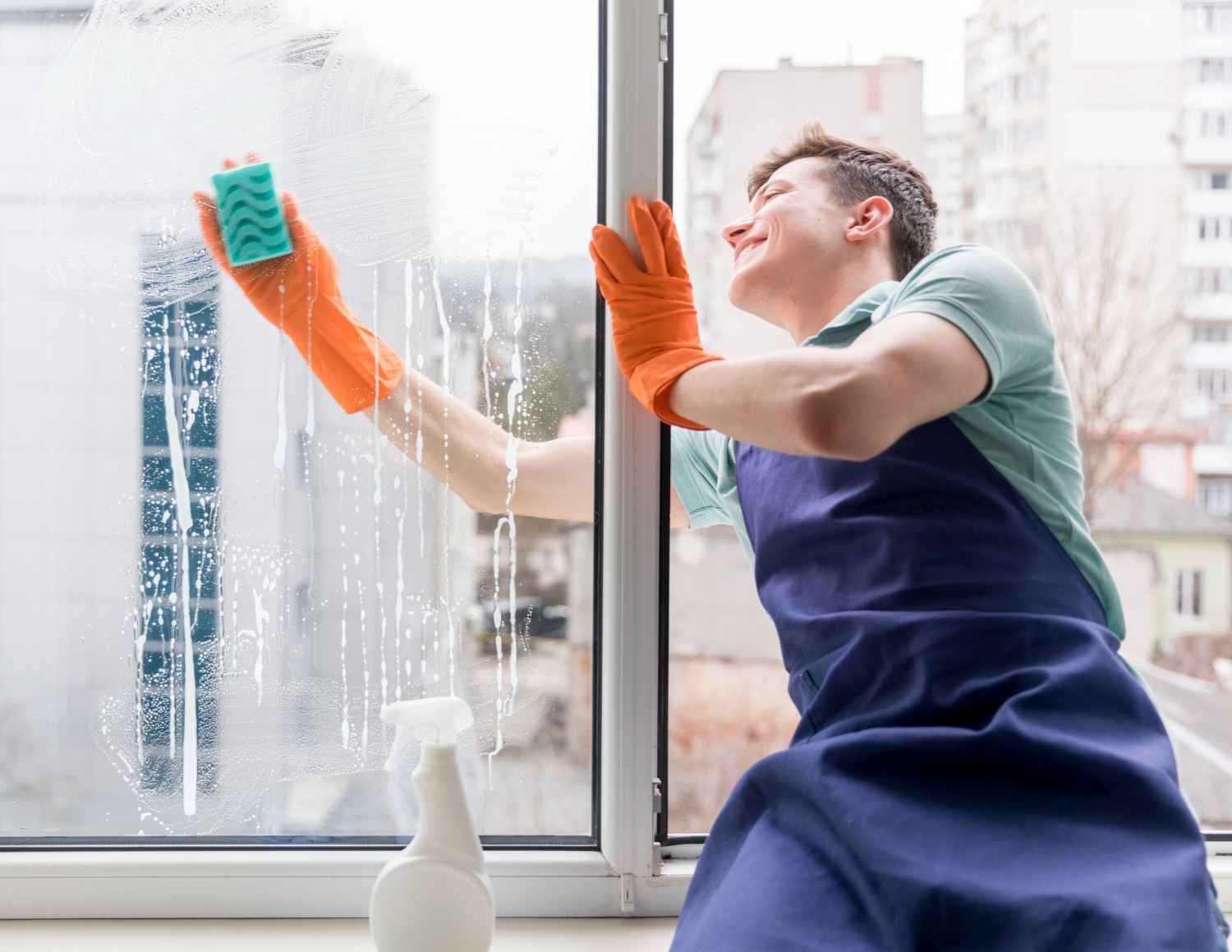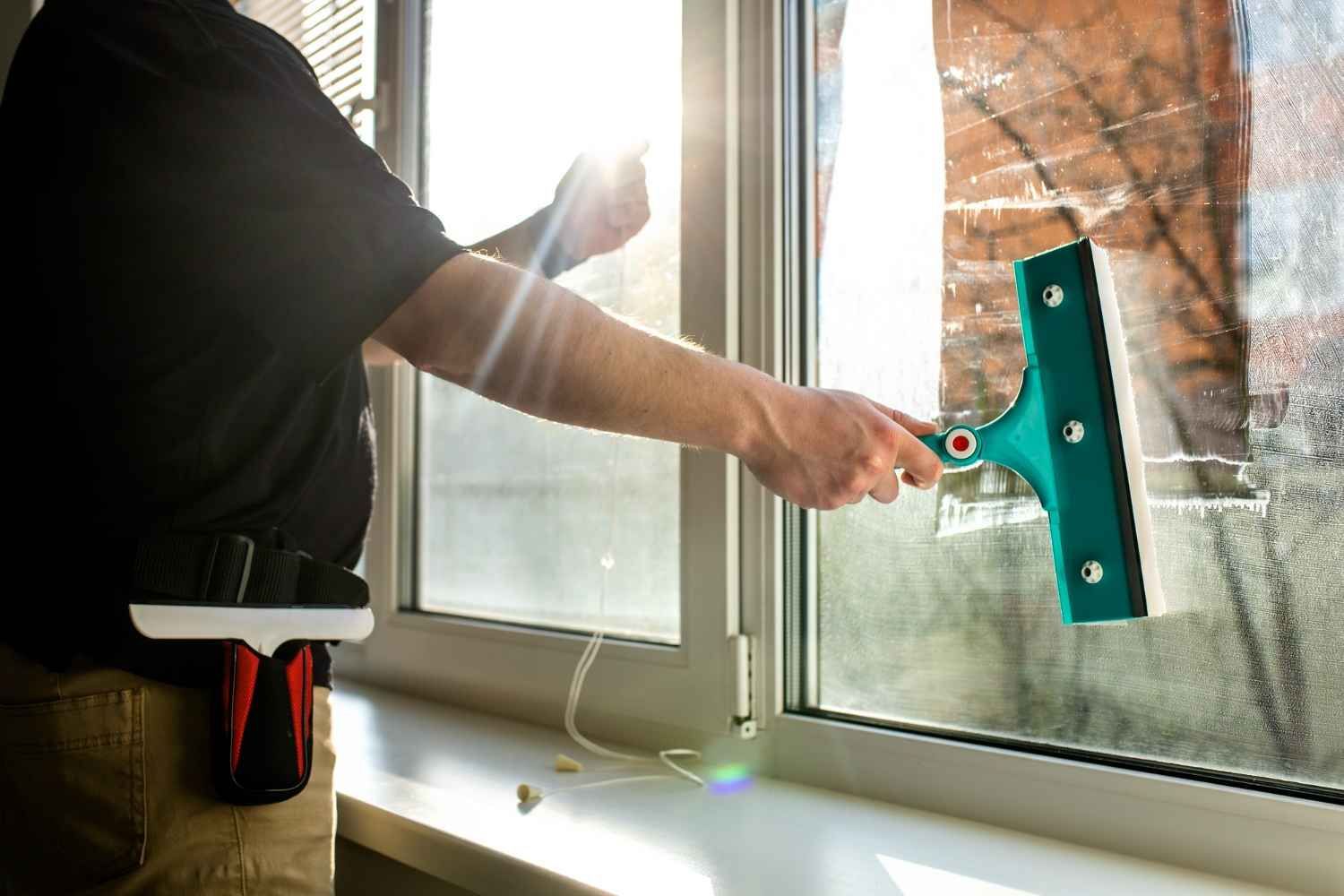Window Cleaning Guide (Procedure & Important Considerations)
Window cleaning is one of the most crucial home maintenance tasks for making windows spotlessly shining. Windows are exposed to the outside environment and become dirty due to the accumulation of dirt, dust, and smoke particles. Moreover, moisture also accumulates on windows, and a layer of grime is formed when these particles fall on moisturized window surfaces, requiring you to clean windows to restore their shine and fresh appearance.
This article explains the steps involved in cleaning windows and some important considerations that help you clean windows efficiently. It also includes DIY window cleaning solutions and the advantages of cleaning windows regularly.
Steps Involved in Window Cleaning
- Dust the window blinds or shades and remove them.
- Cover the floor with a drop cloth and move the furniture items away.
- Prepare a homemade cleaning solution or get one from the market.
- Clean the window tracks, dust the window frames, and wipe down the window ledges using a soft-bristled brush or vacuum.
- Remove the dust from the window glass panes with the help of a clean and dry microfiber cloth.
- Take a small amount of non-abrasive cleaner on a microfiber cloth and apply it on the obvious marks or smudges to remove them.
- Rub the cloth on those parts of window glass from where spots are to be cleaned.
- Soak a rag in a warm, soapy solution for cleaning window frames.
- Start cleaning the window from top to bottom in a zig-zag pattern with the help of a microfiber cloth.
- Take a dry microfiber cloth to remove the residues of the remaining solution once the entire pane is cleaned.
- Wipe down the window frame and handles.
- Vacuum window screens to remove dirt and dust.

Important Considerations
You should keep these considerations in mind to ensure you complete window cleaning task efficiently and safely:
- Do not use heavily ammonia- or alcohol-based cleaning solutions to avoid streaks on windows that can attract dust and moisture.
- Ensure that cleansers or solvents do not get on the frames to avoid the issue of discoloration.
- Do not use a razor blade for scraping off stubborn or stuck-on marks from windows to avoid the appearance of scratches on the glass surface.
- Do not use the power washing technique to clean the window frames.
- Avoid using abrasive chemicals for cleaning the window frames to save them from discoloration.
- Use mineral spirits for removing stubborn deposits and stains from windows.
- Always use a lint-free microfiber cloth for window cleaning.
- Spray the cleaning solution on a microfiber cloth rather than spraying it directly on window glass.
- Remove the solution residue from window panes quickly to avoid the appearance of streaks.
- Use a sponge to wash the windows and a squeegee to wipe the solution off, starting from the top to the bottom.
- Wipe the squeegee’s edge after every swipe to keep it clean and avoid dripping.
- Dip a sponge in a solution of hot water and mild detergent for cleaning grease spots from kitchen windows.
- Clean the window screens gently to save them from bending.
- Avoid cleaning windows in direct sunlight to prevent soapy water from drying up and forming patches on window surfaces.
DIY Window Cleaning Solutions
Some window cleaning solutions can be made using different supplies available at home. Making these solutions at home is a cost-effective way to clean your windows efficiently.
Vinegar
Vinegar is one of the most efficient cleaning agents for making windows streak-free. Its acidic composition breaks the film made on windows due to accumulated dust or grime. You can make a vinegar solution at home by mixing vinegar and water 1:10, respectively, and adding this mixture to a spray bottle for cleaning the window.
Alcohol
Alcohol is an effective cleaning agent for removing stubborn stains from windows. You can apply a small amount of alcohol to a clean cloth and rub it directly on the stain, or you can make a window cleaning solution by mixing alcohol, vinegar, and water together.
Dish Washing Soap
You can add a few drops of dishwashing soap to your homemade window cleaning solution to remove grime. This solution can effectively wash the exterior surfaces of windows that are directly exposed to external polluting agents.
Essential Oils
You can add 1 to 2 drops of essential oils to your homemade window cleaning solution to leave a pleasant aroma after the windows are cleaned.

Advantages of Window Cleaning
Cleaning the windows removes all the dirt, dust, and grime and makes them look clean and bright. Neat and clean windows allow more natural light to come inside your property, illuminate all the parts, and create a pleasant environment inside. Clean windows are more appealing and create a positive impression on guests when they enter your property or look at them from outside.
Regular window cleaning helps you identify potential problems earlier, get them repaired in a timely manner, and keep them in good condition for several years. Therefore, you should clean your windows once a month or at least twice a year to retain their fresh appearance and maintain their quality.

